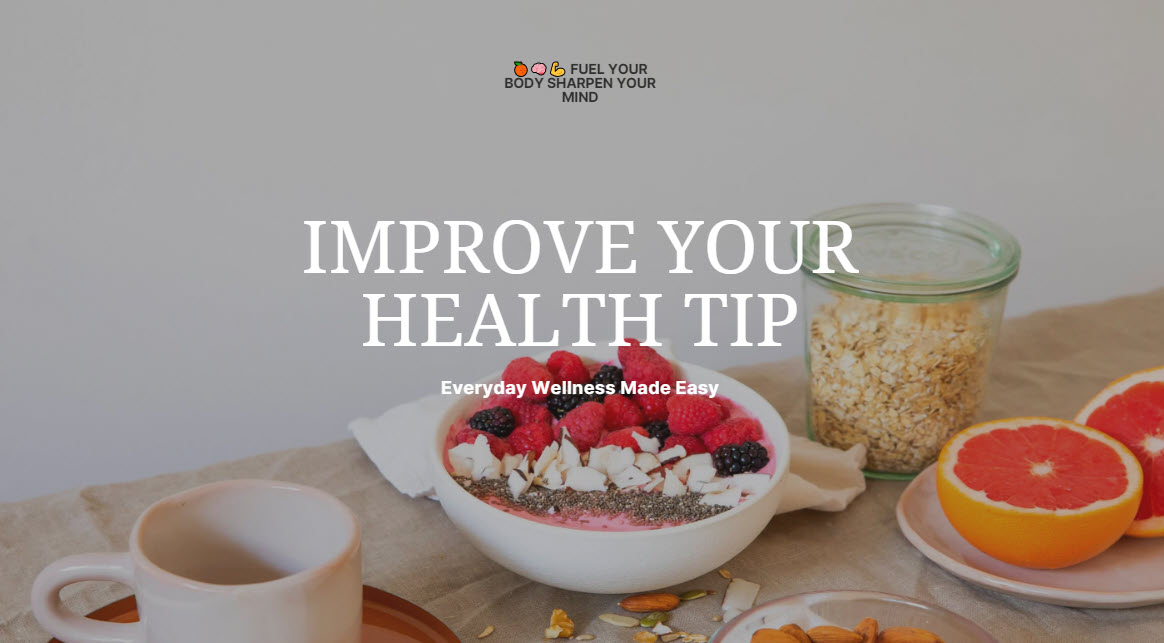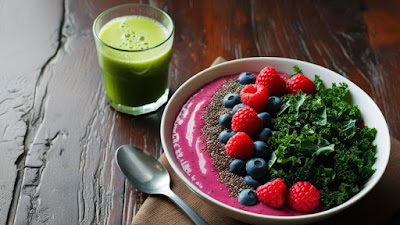Detoxing Your Body Naturally: Myths and Facts
Detoxing Your Body Naturally: Myths and Facts - Detoxing has become a buzzword in the health and wellness industry, with countless products and diets promising to rid your body of toxins and improve overall health. But how much of it is science, and how much is just marketing? In this article, we’ll debunk common detox myths, uncover the facts, and explore natural ways to support your body’s detoxification processes.
Understanding Detoxification
The human body is designed to detox itself naturally. Your liver, kidneys, skin, lungs, and digestive system work together to remove toxins and waste from your body every day. Detoxification isn’t about extreme diets or expensive cleanses—it’s about supporting these organs so they can function efficiently.
Myths About Detoxing
1. You Need Expensive Detox Teas and Supplements
🚫 Myth: Drinking detox teas or taking supplements is necessary to cleanse your body. ✅ Fact: Your body detoxifies itself naturally, and most detox teas are simply laxatives that can lead to dehydration and nutrient loss.
2. Detoxing Removes All Toxins from Your Body
🚫 Myth: A detox will remove every harmful toxin from your body. ✅ Fact: Your body is exposed to toxins daily, but your liver and kidneys work continuously to filter and eliminate them. There’s no quick fix that will eliminate all toxins overnight.
3. Juice Cleanses Are the Best Way to Detox
🚫 Myth: Drinking only juice for several days will flush toxins out of your system. ✅ Fact: Juice cleanses can deprive you of essential nutrients like protein and healthy fats, leading to fatigue and muscle loss.
4. Sweating Helps You Detox Completely
🚫 Myth: The more you sweat, the more toxins you remove. ✅ Fact: Sweat primarily consists of water and electrolytes, not harmful toxins. While sweating is healthy, your liver and kidneys do most of the detoxification work.
5. Fasting is Necessary for Detoxification
🚫 Myth: Skipping meals will help your body detox faster. ✅ Fact: Prolonged fasting can slow metabolism and deprive your body of essential nutrients, weakening your immune system.
Facts About Natural Detoxification
1. Drink Plenty of Water
💧 Water is essential for flushing out waste through urine and sweat. Aim for at least 8 cups a day to stay hydrated and support your kidneys.
2. Eat a Fiber-Rich Diet
🥦 Fiber helps your digestive system eliminate waste effectively. Include whole grains, fruits, vegetables, and legumes in your diet.
3. Support Your Liver with Nutrient-Rich Foods
🍋 Your liver detoxifies naturally when fueled with the right nutrients. Eat foods like garlic, turmeric, beets, and leafy greens.
4. Get Enough Sleep
😴 Sleep is crucial for cellular repair and detoxification. Aim for 7-9 hours of quality sleep per night.
5. Exercise Regularly
🏃♂️ Physical activity supports circulation, helps regulate digestion, and reduces stress, all of which contribute to effective detoxification.
6. Reduce Alcohol and Processed Foods
🚫 Too much alcohol and processed food can overburden your liver. Limit alcohol intake and avoid highly processed foods.
7. Try Dry Brushing and Sauna Sessions
🛀 Dry brushing stimulates lymphatic drainage, while sauna sessions may support circulation and relaxation.
8. Support Gut Health with Probiotics
🦠 A healthy gut microbiome plays a crucial role in detoxification. Eat fermented foods like yogurt, kimchi, and sauerkraut.
9. Cut Back on Sugar and Artificial Additives
🍬 Excess sugar can lead to inflammation and fatty liver disease. Opt for natural sweeteners like honey or fruit instead.
10. Manage Stress Levels
🧘 Chronic stress can negatively impact digestion and liver function. Practice yoga, meditation, or deep breathing to manage stress effectively.
Conclusion
Detoxing isn’t about extreme diets, starvation, or expensive products—it’s about making small, sustainable lifestyle changes that support your body’s natural detoxification processes. By eating nutrient-dense foods, staying hydrated, exercising, and getting enough rest, you can keep your body in peak condition without resorting to unnecessary detox fads. Your body already knows how to cleanse itself—you just have to give it the tools to do its job!


